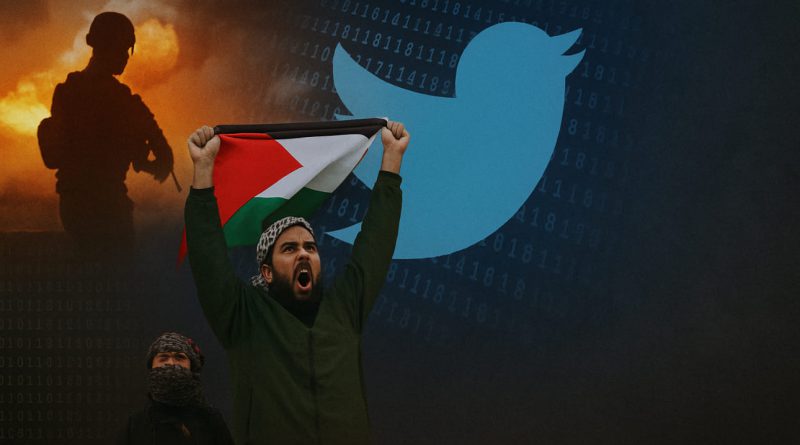Post-October 7: When Journalism Became Tribalism and Analysis Became Algorithm
The new battlefield is not only in Gaza or southern Lebanon or the Red Sea—it is in the human mind.
In the fog of war, there was once clarity. Now, even the fog is fabricated.
Few voices carry the gravitas of Aimen Dean — a man who has lived across the fault lines of war, finance, faith, and espionage. From the jihadist battlefields of Nangarhar to the polished boardrooms of global banking, and from the roar of Iraqi Scud missiles in Khobar to the intricate corridors of MI6, Dean has seen the anatomy of conflict from all angles. And yet, as he confesses in a searing reflection on today’s geopolitical chaos, he has “never encountered anything quite like the post-October 7 world.”
That day—October 7, 2023—marked the launch of Hamas’s surprise attack on southern Israel, igniting one of the most ferocious and emotionally charged wars in the modern Middle East. But what concerns Dean even more than the rockets and rubble is the war on truth that followed.
“Emotion has not just trumped reason,” Dean writes. “It has obliterated it.”
From the Trenches to Twitter
Dean’s journey is not abstract. He is not an academic pontificating from afar. He has walked where others write. His mother’s anguish in war-torn southern Lebanon, his own experiences as a young radical turned MI6 asset, and his later roles as a financial advisor and geopolitical analyst, offer a rare panoramic view of how narratives are weaponized.
In his previous encounters with war—whether in the Balkans, Iraq, Afghanistan, or Yemen—Dean says there was always some degree of clarity. One could discern the agendas, the actors, and eventually the consequences. There were lies, yes, but also enough context and experience to “slice through the disinformation.”
But since October 7, he observes, the informational ecosystem itself has collapsed. Social media, once hailed as a democratizer of voices, now amplifies tribalism. Hashtags replace history. Slogans drown out nuance. What used to be propaganda, Dean warns, has evolved into performance art.
The Age of the Algorithm
The new battlefield is not only in Gaza or southern Lebanon or the Red Sea—it is in the human mind. According to Dean, most people have been “drafted” into this battlefield without knowing it.
This is no longer just about pro-Israel or pro-Palestine stances. It’s about how easily global audiences are manipulated into cheering for narratives without interrogating them. “What used to be journalism is now tribalism,” Dean remarks. “What used to be analysis is now algorithm.”
The algorithm—a word synonymous with social media manipulation—has replaced inquiry with impulse. Platforms now reward emotional outrage, not intellectual depth. Truth becomes the casualty, and the casualty count is rising.
The Noise Filter: Survival in the Age of Misinformation
Dean introduces a concept he calls the “noise filter.” It’s not born of cynicism, he stresses, but of survival—a mental shield forged through years of discerning patterns, lies, motives, and inconsistencies. It is a skill that enables one to see the real enemy—not the one dictated by groupthink or online tribalism.
And herein lies perhaps his most powerful insight: “Being a good analyst doesn’t mean staying neutral. That’s a myth. It means choosing sides wisely. Not all devils are equal.”
This stands in stark contrast to the popular—and sometimes cowardly—mantra of neutrality that permeates Western institutions and media, often under the guise of “balanced reporting.” Dean argues that neutrality in the face of blatant propaganda or aggression is not objectivity—it’s abdication.
A Crisis of Moral Discernment
Dean’s post is not just a lament; it’s a warning. The world is experiencing a crisis of moral discernment, accelerated by disinformation, emotional manipulation, and a digital culture that prizes identity over integrity.
The “loudest lie wins,” he notes, a chilling reminder of how far removed modern political discourse has become from facts. Many people no longer seek truth but affirmation. And when every corner of the internet offers custom-made truth, the very concept of objective reality becomes endangered.
For a man who has interrogated extremists, foiled plots, and navigated the underworld of global terrorism, this new reality—this collapse of truth—feels more threatening than any bomb or bullet.
Final Front: The Battle for the Mind
We often speak of kinetic warfare, of missile strikes and armed resistance. But Dean reminds us that the ultimate battle is for the mind. The frontlines have shifted from deserts to data centers, from refugee camps to recommendation algorithms.
In this war, no one is untouched. And those who fail to build their own noise filter will find one built for them—by regimes, influencers, bots, and ideologues—all charging a steep price: your soul.
This is the battlefield of our age. And as Aimen Dean makes painfully clear, truth is not only the first casualty—it’s now on life support.



